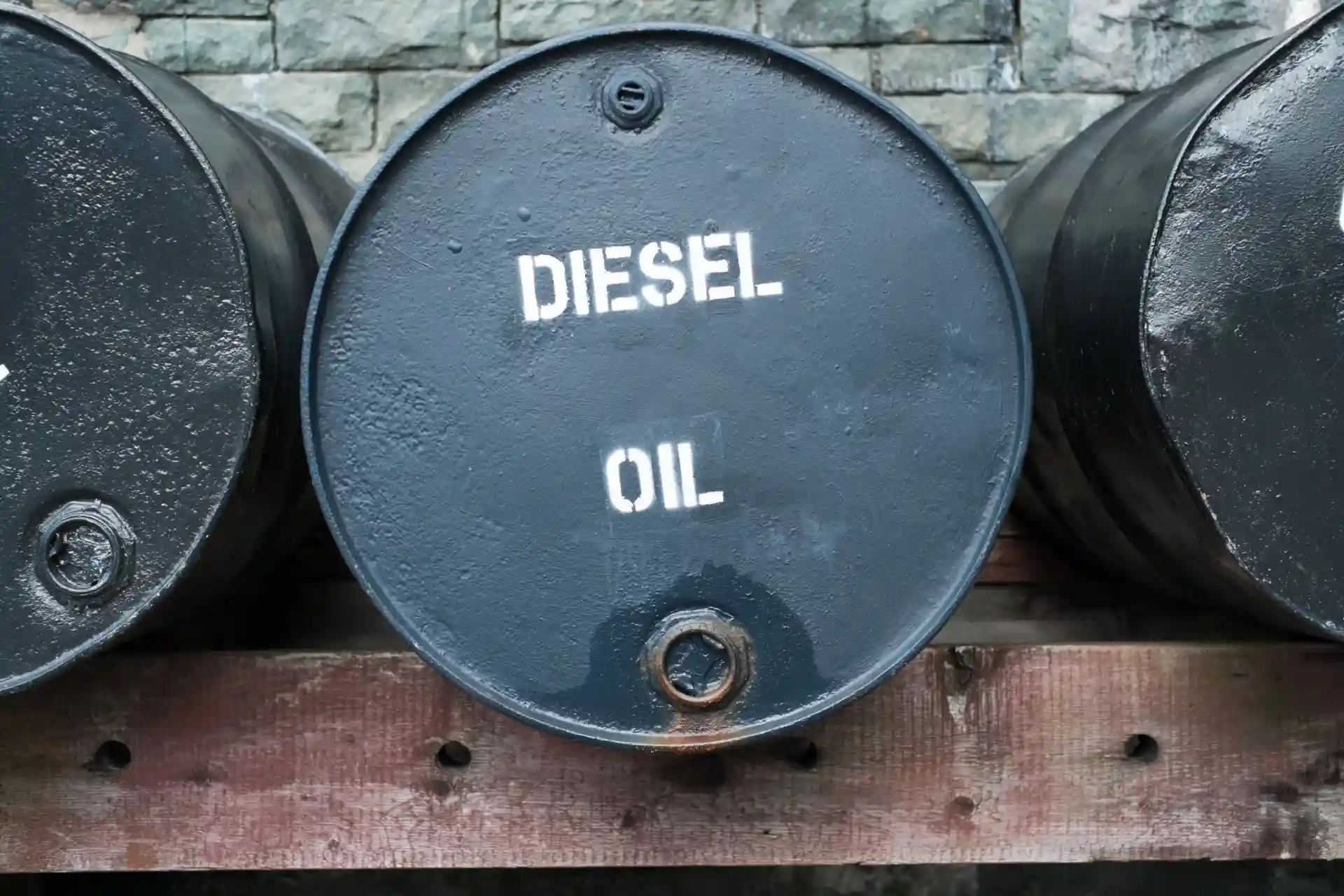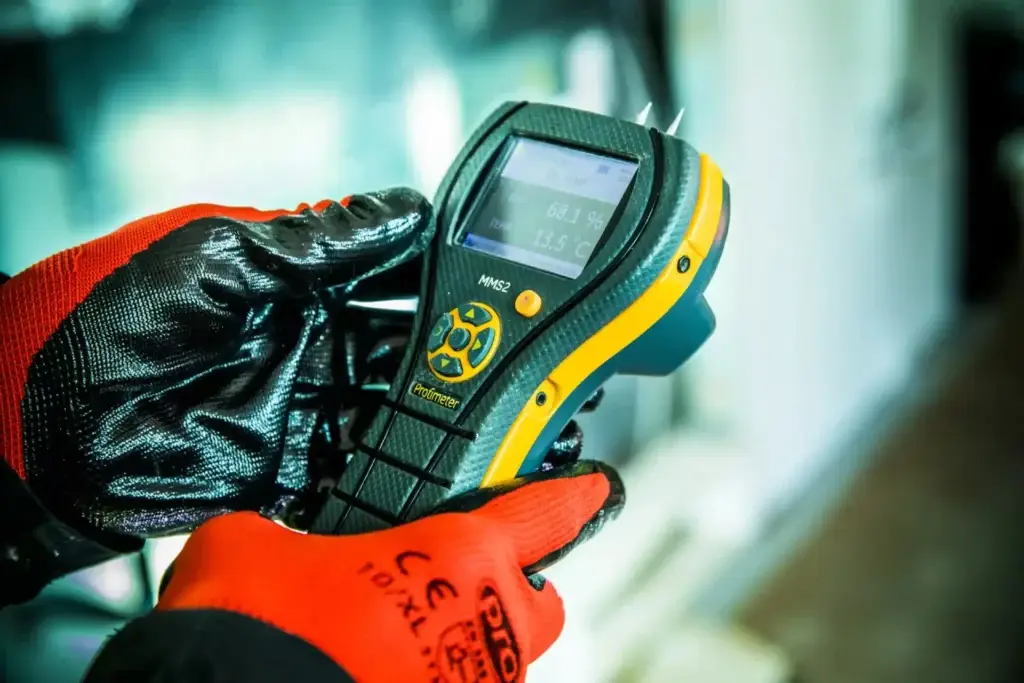Diesel spills happen fast, a delivery hose snaps, a generator tank overflows, or a vehicle ruptures on-site, and suddenly your business is dealing with hazardous fuel on the ground, contaminated soil and a potential environmental incident.
In the UK, diesel is classified as a hazardous pollutant, and even small spills can trigger investigations from the Environment Agency, lead to significant fines, or force costly operational shutdowns. For many businesses, the biggest mistake isn’t the spill itself… it’s the delay in responding correctly.
Whether the incident occurs on a construction site, industrial yard, agricultural operation or commercial premises, you are legally responsible for ensuring the spill is contained, cleaned and remediated properly. And that process must begin immediately.
This guide explains exactly what UK businesses must do in the first minutes, hours and days after a diesel spill, including the legal duties you must follow, the risks of getting it wrong, and when professional intervention becomes essential to protect your site, your reputation and your bottom line.
Skip to:
The real risks of diesel spills (especially for commercial sites)
UK legal responsibilities during a diesel spill
What to do immediately after a diesel spill
Why DIY diesel spill cleaning often makes things worse
How professional diesel spill clean up works (commercial & domestic)
Diesel spill clean up costs in the UK
Insurance and diesel spills – what you need to know
The bottom line: Fast action prevents contamination, downtime & legal risk
The real risks of diesel spills (especially for commercial sites)
Diesel is classified as a pollutant under UK environmental law. Even small spills can cause major contamination.
Commercial properties, logistics depots, construction sites, industrial parks, car parks and fuel storage locations, face greater risks because diesel spills tend to be:
- Larger in volume
- More likely to enter drains
- More damaging to surfaces
- Higher liability risk
- Subject to regulatory oversight
Some of the most significant risks include:
Environmental contamination
Diesel entering soil or groundwater must be reported immediately. Remediation can cost tens of thousands of pounds if left untreated.
Drain and waterway pollution
A spill entering a surface drain can travel kilometres. The Environmental Agency has the power to issue penalties of up to £250,000 for pollution incidents.
Fire and explosion risk
Although diesel is less volatile than petrol, vapour build-up can ignite under certain conditions.
Major slip hazard
UK highways authorities classify diesel spills as serious road hazards. It significantly reduces tyre traction, leading to collisions.
Business interruption
Industrial or depot spills can halt operations entirely until surfaces are made safe.
The longer the spill remains untreated, the more expensive and dangerous it becomes.
UK legal responsibilities during a diesel spill
If you manage or own a commercial site, you have a legal duty of care to prevent and manage spills effectively.
Key UK regulations include:
- Environmental Protection Act 1990: You must prevent pollution of land and water.
- Water Resources Act 1991: It is an offence to allow diesel to enter watercourses or drains.
- Control of Pollution (Oil Storage) (England) Regulations 2001: Applies to sites storing over 200 litres of oil or diesel.
- Health & Safety at Work Act 1974: Requires a safe working environment, diesel on flooring or roadways breaches this.
- Reporting obligations: Serious pollution incidents must be reported to the Environment Agency via the UK Incident Hotline (0800 80 70 60).
Failure to comply can lead to enforcement notices, prosecutions or financial penalties. Domestic customers are not held to the same operational standards, but a homeowner can still be liable if diesel pollutes neighbouring land or drains.
What to do immediately after a diesel spill
Whether the spill is on a driveway or a commercial forecourt, the first steps are critical and often determine how serious the incident becomes.
- Stop the source: Shut off fuel supply, isolate equipment, and contain any further leakage.
- Protect drains: Use spill kits, absorbent socks or even sand/soil if nothing else is available. Preventing drain entry is your number-one priority.
- Isolate the area: Stop vehicle and foot traffic. Diesel is extremely slippery.
- Call a professional spill response team for medium or large spills: Commercial sites should always call specialists (such as Ideal Response), diesel spreads faster than people expect, and improper cleaning can cause long-term surface damage or fines.

Why DIY diesel spill cleaning often makes things worse
Many people assume diesel can be ‘mopped up’ or washed away. Unfortunately, this often pushes the contamination deeper.
Common issues with DIY attempts include:
- Using water, which spreads the contamination
- Using the wrong absorbents
- Allowing diesel to enter drains
- Leaving residues that damage tarmac
- Failing to remove odour or staining
- Overlooking environmental reporting obligations
On commercial ground surfaces, especially porous or damaged tarmac, diesel can penetrate deeply, requiring specialist extraction and remediation.
How professional diesel spill clean up works (commercial & domestic)
At Ideal Response, our diesel spill process follows industry best practice and environmental standards. While every site is different, the general process includes:
- Step 1: Site assessment – We identify the size of the spill, the affected surfaces and the risk of environmental contamination.
- Step 2: Containment – Stopping spread and protecting drains is the priority.
- Step 3: Diesel extraction & absorption – Specialist absorbents remove as much diesel as possible.
- Step 4: Surface agitation & deep cleaning – We use professional degreasers, mechanical agitation and hot water extraction systems to remove diesel residue.
- Step 5: Remediation if contamination has spread – If soil or porous material is affected, remediation or ground excavation may be required.
- Step 6: Disposal of contaminated waste – All materials are removed in compliance with UK hazardous waste regulations.
- Step 7: Surface testing & reinstatement – We ensure surfaces are safe, stable and compliant before reopening the area.
Diesel spill clean up costs in the UK
Costs vary depending on:
- Spill size
- Whether drains or soil are affected
- Surface type (concrete, tarmac, porous ground)
- Remediation requirements
- Site accessibility
Typical ranges:
- Small domestic spill: £250 – £750
- Moderate commercial spill: £800 – £2,500
- Large industrial spill or land contamination: £3,000 – £20,000+
Insurance may cover the clean up depending on policy wording.
Insurance and diesel spills – what you need to know
Many commercial policies cover accidental fuel spills, but insurers expect:
- Immediate action to limit damage
- Proper documentation
- Professional clean-up
- Environmental compliance
If a business delays treatment or attempts to clean the spill improperly, insurers may argue the incident was worsened through negligence.
Ideal Response provides insurer-approved documentation and incident reports to support claims.
The bottom line: Fast action prevents contamination, downtime & legal risk
Much like oil spills, diesel spills are time-sensitive. The longer the fuel remains on a surface, the deeper it penetrates, the greater the environmental risk becomes, and the higher the clean-up cost climbs. For commercial sites, a single spill can halt operations, endanger staff, or result in fines if not managed properly.
Whether the incident happened on a construction site, transport yard, industrial forecourt or a domestic driveway, professional intervention is the safest and most cost-effective way to contain and remediate the spill.
Ideal Response delivers rapid, compliant diesel and oil spill clean up across the UK, protecting businesses, property owners and the environment.
Call our emergency spill response team 01622 926 505
FAQs: Diesel spill clean up in the UK
Do I need to report a diesel spill to the Environment Agency?
You must report any spill that enters, or is at risk of entering, drains, groundwater or soil. Commercial sites have stricter reporting obligations.
Can I clean a diesel spill myself?
Small domestic spills may be manageable, but commercial or outdoor spills should always be handled professionally to avoid contamination, legal issues and safety risks.
How fast can a diesel spill spread?
Diesel can travel several metres in seconds, especially on wet surfaces or sloped ground. Drain protection is critical.
How do you remove diesel from tarmac or concrete?
We use specialist degreasers, mechanical agitation, steam-based extraction and, if necessary, remediation for deep contamination.
What happens if diesel enters a drain?
It becomes an environmental incident. You must notify the Environment Agency and call a professional spill response team immediately.
Is diesel dangerous to breathe or touch?
Prolonged exposure can irritate skin and lungs. Vapours may pose fire risks. Affected areas should be isolated until cleaned.
Will insurance cover diesel spill cleaning?
Many commercial policies do, but insurers require fast action, evidence, professional involvement and sometimes environmental reports.
How quickly should diesel spill clean up start?
Immediately. Every minute increases the risk of contamination and legal liability. Most commercial locations must treat spills without delay.

Chris Hedges - Head of Marketing
With over 25 years' experience, Chris is adept at defining and driving strategy, while also enjoying hands-on operational delivery. He believes in an equal blend of creativity and analytical scrutiny, always finding inventive ways to achieve objectives, underpinned by evidence. Chris’s philosophies are simple: don't overcomplicate, always prioritise customer experience, and bend the rules just enough to cut through the noise and drive momentum and growth.





















